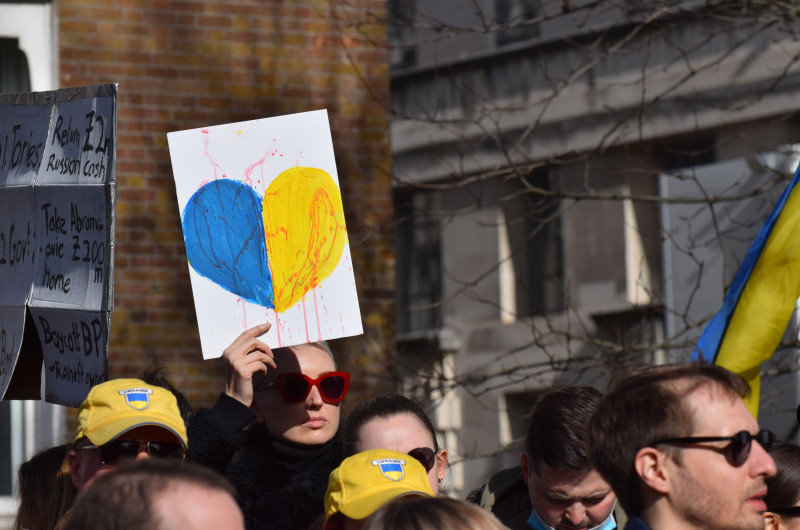
Feature Article No: 01/24
24 April 2024
Brussels
By Susan Kim (*)
Rev. Dr Roman Fihas is director of the Institute of Ecumenical Studies of the Ukrainian Catholic University. He was among the church leaders a CEC delegation met with during a solidarity visit from 8 to 10 April.
When Rev. Dr Roman Fihas considers the denominational landscape in Ukraine, particularly since its independence in 1991, he sees evidence of misunderstandings between churches—but also a corresponding willingness to engage with each other.
“The absence of a single most influential confession has created some competition and misunderstandings between Christian churches, but on the other hand, this diversity has encouraged Ukrainian denominations to listen, communicate, and cooperate,” he said. “The war unleashed by Russia against Ukraine has revealed how close the churches are to people, when from the beginning Christians have been close to those who suffer and need help.”
In Ukraine, diversity in church structures gives way to unity in striving for human dignity—and that’s inspiring and hopeful to Fihas.
“Joint social work, joint advocacy of the principles of lasting peace, which cannot be based only on stopping the war, but must be based on the principles of justice and solidarity, shared responsibility for caring for human dignity and for the right of everyone to build their future: these are the principles witnessed by the most Ukrainian churches today, and this is what already unites them,” he said. “Of course, the ability to listen and not compete with each other, to start a serious theological dialog, is a task for Ukrainian denominations.”
He also believes prayer is a powerful tool. “We ask the world to pray for a just peace to become a reality on our long-suffering land because of the unjust Russian aggression and in the whole world,” he said. “And of course, ora et labora, pray and work and to work is to pray!”
Even as Fihas sees the war trying to destroy life, he commits himself to daily work for peace.
“In addition, my work at the Institute of Ecumenical Studies in Lviv (Ukraine) is also about unity, about supporting each other, about explaining the causes of this war, about meeting with our international colleagues, about finding ways of unity that will make our churches and our communities stronger,” he said. “We organize schools, seminars, and conferences for various communities in Ukraine—seminarians and representatives of youth communities, military chaplains, and others—where together with religious and civil leaders, and with people of good will, we try to find ways to support the resilience of the Ukrainian people and jointly seek ways to bring us to the much-desired peace.”
He points out that, in the Ukrainian context, there has long been talk of the use of religious rhetoric in Russian political statements and the use of imperial propaganda in the religious language of the Russian Orthodox. “Religion can never be used to justify aggression - it is unacceptable!” he said. “Ukrainians can testify that the war did not begin only in 2022, but decades before, namely when the propaganda of the war began to sound, where the religious narrative was subordinated to the invasive neo-imperialist Russian ideology.”
Learn more about Pathways to Peace
(*) Susan Kim is a freelance journalist from the United States.